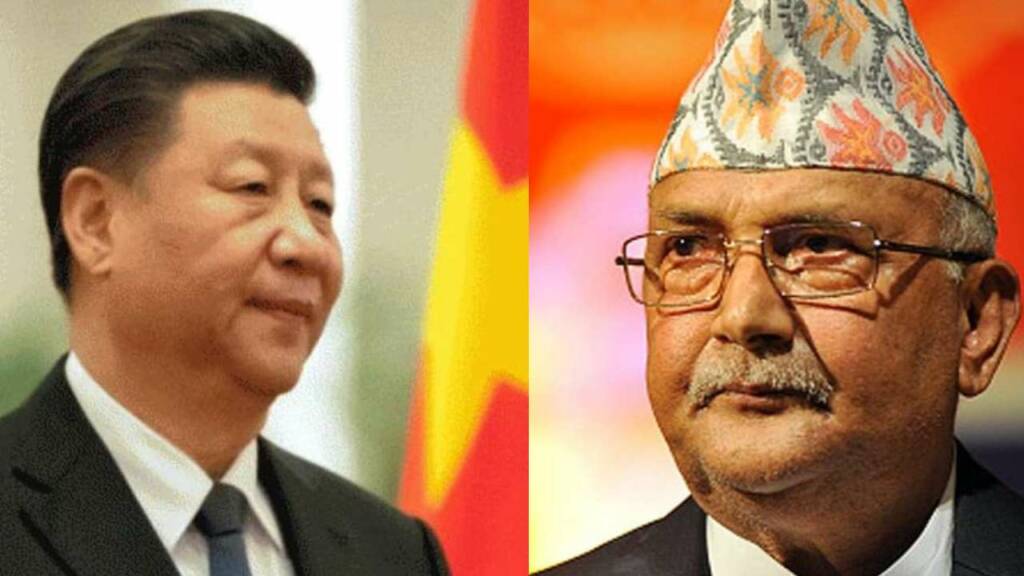The Chinese Communist Party seemed to be going an extra mile to unite the two factions in the now divided Nepal Communist Party, a result of the merger of PM Oli’s Communist Party of Nepal (Unified Marxist–Leninist) and Prachanda’s Communist Party of Nepal- Maoist Centre. China had sent a delegation of high ranking officials to try and convince the two factions and their respective leaders to mend ties and reach a constructive understanding. However, after a snub by PM Oli and the Prachanda-Madhav Nepal faction, the delegation returned to China after a massive failure.
After an unsuccessful series of meetings, the four-member delegation led by Guo Yezhou, a vice-minister of the International Department of the Communist Party of China’s central committee, boarded a flight out of Kathmandu’s airport on Wednesday.
Citing that the faction led by Prachanda and Madhav Nepal is going to bring a no-trust motion against him in Parliament, PM Oli had dissolved the House of Representatives on December 20 and recommending fresh elections.
With the Nepal PM KP Sharma Oli recommending the dissolution of parliament and the President Bidya Devi Bhandari signing on the same, all the efforts of China on creating a solid block of influence in the region has been negated. However, as they have invested a lot of resources to gain influence in Nepal and with the creation of a united communist front, China wants to save the Communist Government in Nepal at any cost.
According to sources, Guo Yezhou worked on several options to retain the dominance of the communist parties in Nepal’s politics. The first of those was convincing PM Oli to rescind the recommendation to dissolve the 275-member House of Representatives. Desperate to save the Communist Government, the delegation went as far as to offer to use President’s Xi’s influence with the rival faction to get them to back off and guaranteed that Oli would be able to complete his five-year term.
But PM Oli also stood firm on his decision that only the Supreme Court will decide the future of Nepal, and no other country will be given the powers to dictate Nepal’s sovereign issues. Political analysts believe that PM Oli is fed up with the frequent interference of China, and now he wants to get rid of the clutches of the dragon.
Thereafter, the delegation attempted to mobilise an alternative government led by the Communist Party, without PM Oli. They looked at the possibility of getting the Prachanda-Madhav Nepal faction, support from opposition parties. However, this effort also clearly went down the drain as the faction rejected China’s involvement. Prachanda, fresh after meeting the Chinese delegation, gave an interview to a TV channel where he stated that India has always been a supporter of Nepal’s democratic movement as he urged India, Europe and the USA to prevent the partition of the Nepal Communist Party.
After the second snub, the Chinese delegation also floated the possibility of PM Oli and Prachanda factions resolving their differences to jointly contest the scheduled national elections. This formulation was rejected outrightly by PM Oli.
According to sources, Guo Yezhou’s mission in Nepal also reached out to the next generation of Nepal Communist Party leaders from both camps to get them to convince their seniors to keep the party united. Clearly, with the delegation packing up and heading back to China, this attempt was unsuccessful.
Thus, it looks like not only PM Oli but none of the leaders in Nepal’s political corridors is in a mood to be ordered around by Chinese officials. If China still feels that it can take Nepal under its control, it’s just wishful thinking. This adamancy by Nepal leaders indicates that even if they have disagreements, China’s involvement is unwelcome.
